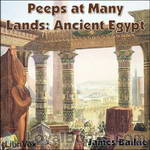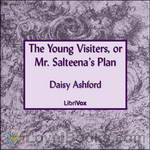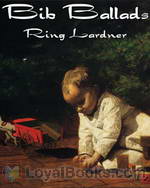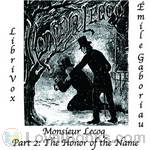|
Books Should Be Free Loyal Books Free Public Domain Audiobooks & eBook Downloads |
|
|
Books Should Be Free Loyal Books Free Public Domain Audiobooks & eBook Downloads |
|
Historical Fiction |
|---|
|
Book type:
Sort by:
View by:
|
By: Charles King | |
|---|---|
 The Daughter of the Sioux,
The Daughter of the Sioux,
Charles King (1844 – 1933) was a United States soldier and a distinguished writer. He was the son of Civil War general Rufus King and great grandson of Rufus King, one of the signers of the Declaration of Independence. He graduated from West point in 1866 and served in the Army during the Indian Wars under George Crook. He was wounded in the arm forcing his retirement from the regular army. During this time he became acquainted with Buffalo Bill Cody. King would later write scripts for several of Cody’s silent films... | |
By: Charles King (1844-1933) | |
|---|---|
 Starlight Ranch And Other Stories Of Army Life On The Frontier
Starlight Ranch And Other Stories Of Army Life On The Frontier
Five stories of Army life in the mid to late 19th century. Charles King (1844 – 1933) was a United States soldier and a distinguished writer. He wrote and edited over 60 books and novels. Among his list of titles are Campaigning with Crook, Fort Frayne, Under Fire and Daughter of the Sioux. | |
By: Owen Wister (1860-1938) | |
|---|---|
 Red Men and White
Red Men and White
These eight stories are made from our Western Frontier as it was in a past as near as yesterday and almost as by-gone as the Revolution; so swiftly do we proceed. They belong to each other in a kinship of life and manners, and a little through the nearer tie of having here and there a character in common. Thus they resemble faintly the separate parts of a whole, and gain, perhaps, something of the invaluable weight of length; and they have been received by my closest friends with suspicion. ...When... | |
By: George Alfred Henty (1832-1902) | |
|---|---|
 With Frederick The Great: A Story of the Seven Years' War
With Frederick The Great: A Story of the Seven Years' War
Among the great wars of history there are few, if any, instances of so long and successfully sustained a struggle, against enormous odds, as that of the Seven Years' War, maintained by Prussia--then a small and comparatively insignificant kingdom--against Russia, Austria, and France simultaneously, who were aided also by the forces of most of the minor principalities of Germany. The population of Prussia was not more than five millions, while that of the Allies considerably exceeded a hundred millions... | |
 With Clive in India
With Clive in India
With Clive in India gives a vivid picture of the wonderful events of the ten years, which at their commencement saw Madras in the hands of the French--Calcutta at the mercy of the Nabob of Bengal--and English influence apparently at the point of extinction in India--and which ended in the final triumph of the English, both in Bengal and Madras. There were yet great battles to be fought, great efforts to be made, before the vast Empire of India fell altogether into British hands; but these were but the sequel of the events described. | |
 Young Carthaginian
Young Carthaginian
Typically, Henty's heroes are boys of pluck in troubled times, and this is no different. Detailed research is embellished with a vivid imagination, especially in this novel set in the Punic wars, about which knowledge is limited: "...certainly we had but a hazy idea as to the merits of the struggle and knew but little of its events, for the Latin and Greek authors, which serve as the ordinary textbooks in schools, do not treat of the Punic wars. That it was a struggle for empire at first, and latterly... | |
 At the Point of the Bayonet: A Tale of the Mahratta War
At the Point of the Bayonet: A Tale of the Mahratta War
The story of the war in which the power of the great Mahratta confederacy was broken ended in the firm establishment of the British Empire the Indian Peninsula. When the struggle began, the Mahrattas were masters of no small portion of India; their territory comprising the whole country between Bombay and Delhi, and stretching down from Rajputana to Allahabad; while in the south they were lords of the district of Cuttack, thereby separating Madras from Calcutta. The jealousies of the great Mahratta... | |
 Bonnie Prince Charlie: a Tale of Fontenoy and Culloden
Bonnie Prince Charlie: a Tale of Fontenoy and Culloden
This is a tale of the son of a Scottish officer, who gets arrested for helping a Jacobite agent. Set during the Jacobite rebellion in Scotland in 1755, the boy escapes and makes it to France and shares some adventures with Prince Charlie. | |
 In the Reign of Terror: The Adventures of a Westminster Boy
In the Reign of Terror: The Adventures of a Westminster Boy
Like all Henty books, this one centers around a young English lad whose courtesy and courage win the day. Harry Sandwith travels to France to serve a French Marquis, despite the rumblings of a revolution. Follow along to benefit from a wholesome story full of historical facts in good, old Henty fashion. (Introduction by Jenn Raimundo) | |
 Captain Bayley's Heir: A Tale of the Gold Fields of California
Captain Bayley's Heir: A Tale of the Gold Fields of California
When young Frank is falsely accused of a crime, he leaves England to seek adventure in America. He joins a wagon train heading west to the California gold fields, but as he is soon to find out, the West is more than just adventure! Braving Indians, wolves, and other dangers, Frank is determined to strike it rich - and perhaps someday clear his name and return home. | |
By: James Baikie | |
|---|---|
 Peeps at Many Lands: Ancient Egypt
Peeps at Many Lands: Ancient Egypt
Written primarily for children, James Baikie’s ‘peep’ at ancient Egypt is a really well done, historical account of the ways of that fascinating land so many years ago. It has stood well the test of time, being both well researched and well written. It’s a fun book for everyone, and families especially will enjoy listening together. | |
By: Martha Finley (1828-1909) | |
|---|---|
 Elsie's Children
Elsie's Children
This book continues the delightful "Elsie Dinsmore" series. Elsie's children, introduced in the previous volume, live life, grow up, and encounter various problems of their own. Additional Proof Listeners: AlaynaMay & Rachel. | |
By: Daisy Ashford (1881-1972) | |
|---|---|
 The Young Visiters, or Mr. Salteena's Plan
The Young Visiters, or Mr. Salteena's Plan
The Young Visiters is a comic romance novella that parodies upper class society of late Victorian England. Social climber Alfred Salteena introduces his young lady friend Ethel to a genuine gentleman named Bernard and, to his irritation, they hit it off. But Bernard helps Alfred in his plan to become a gentleman, which, Alfred hopes, will help him win back Ethel. | |
By: Ring Lardner (1885-1933) | |
|---|---|
 Bib Ballads
Bib Ballads
Ring Lardner is a typical parent when his first child is born, full of wonder and the rest of the usual emotions as he watches his little son grow. He wrote a series of 29 short poems on various facets of parenthood. | |
By: Jane Porter (1776-1850) | |
|---|---|
 The Scottish Chiefs
The Scottish Chiefs
An adventure novel about William Wallace, one of the most popular books ever written by Jane Porter. The French version was even banned by Napoleon, and the book has remained very popular with Scottish children, but is equally enjoyable for adults. | |
By: Vicente Blasco Ibáñez (1867-1928) | |
|---|---|
 Four Horsemen of the Apocalypse
Four Horsemen of the Apocalypse
The Four Horsemen of the Apocalypse, by Vicente Blasco Ibañez and translated into English by Charlotte Brewster Jordan, depicts two branches of a family with its roots in the pampas of Argentina. The wealthy Argentinian, Julio Madariaga, comes from Spain and raises himself from poverty, becoming a self-made, wealthy cattleman. He is a man of extremes; an honest man with a rascally knack for taking advantage of others; a self-made man with overweening pride, prejudices, and a sharp, flinty temper that can spark into violence, he is at the same time given to great generosity toward those who are under him... | |
By: Robert Michael Ballantyne (1825-1894) | |
|---|---|
 Post Haste
Post Haste
In this book, Ballantyne weaves the story of Phillip Mayland and his friend, George Aspel with an interesting portrayal of the British Post Office as it existed in the 19th century. In the words of R. M. Ballantyne himself: "This tale is founded chiefly on facts furnished by the Postmaster-General’s Annual Reports, and gathered, during personal intercourse and investigation, at the General Post-Office of London and its Branches. It is intended to illustrate—not by any means to exhaust—the subject of postal work, communication, and incident throughout the Kingdom... | |
By: Baroness Orczy (1865-1947) | |
|---|---|
 I Will Repay
I Will Repay
This is a sequel novel to the Scarlet Pimpernel. The second Pimpernel book written by Orczy, it comes (chronologically) third in the series and should be read after Sir Percy Leads the Band and before The Elusive Pimpernel. | |
 Laughing Cavalier; Ancestor of the Scarlet Pimpernel
Laughing Cavalier; Ancestor of the Scarlet Pimpernel
The enigmatic smile of The Laughing Cavalier of Franz Hals' famous painting invites you to wonder just what mischievousness hides behind that face. In this novel, inspired by the painting, Baroness Orczy recounts the adventures of an ancestor of her famous character, the Scarlet Pimpernel. Set in Holland during the turbulent times of 1623/1624, this is the story of a swashbuckling romanticist, whose desire for wealth and success always seems to be eclipsed by his sense of what is right and gentlemanly... | |
By: Mary Johnston (1870-1936) | |
|---|---|
 To Have And To Hold
To Have And To Hold
When I first started reading this book, I thought it to be a historical romance novel. As I read further, I pondered whether it might be a sea-faring story. Reading still further, I determined it to be an adventure story. Alas, it is all three. To Have And To Hold, written by Mary Johnston was the bestselling novel of 1900. The story takes place in colonial Jamestown during the 1600’s. Captain Ralph Percy, an English soldier turned Virginian explorer buys a wife - little knowing that she is the escaping ward of King James I... | |
By: Ford Madox Ford (1873-1939) | |
|---|---|
 The Fifth Queen
The Fifth Queen
The Fifth Queen trilogy is a series of connected historical novels by English novelist Ford Madox Ford. It consists of three novels, The Fifth Queen; And How She Came to Court (1906), Privy Seal (1907) and The Fifth Queen Crowned (1908), which present a highly fictionalized account of Katharine Howard's marriage to King Henry VIII. | |
By: George Alfred Henty (1832-1902) | |
|---|---|
 By Pike and Dyke
By Pike and Dyke
It is the 1570's, and the people of the Netherlands live in terror under the cruel dominion of Spain. Though many long to be free of Spanish tyranny, efforts at rebellion are failing, and allies are nowhere to be found. Edward “Ned” Martin, son of an English captain and a Dutch lady, is thrust into the conflict when he resolves to help his mother’s people and avenge his murdered relatives. Entering the service of the revolutionary leader William the Silent, Prince of Orange, Ned is called upon to carry out dangerous secret missions deep within occupied territory... | |
By: Walter Pater (1839-1896) | |
|---|---|
 Marius the Epicurean
Marius the Epicurean
Marius the Epicurean is a philosophical novel written by Walter Pater, published in 1885. In it Pater displays, with fullness and elaboration, his ideal of the aesthetic life, his cult of beauty as opposed to bare asceticism, and his theory of the stimulating effect of the pursuit of beauty as an ideal of its own. The principles of what would be known as the Aesthetic movement were partly traceable to this book; and its impact was particularly felt on one of the movement’s leading proponents, Oscar Wilde, a former student of Pater at Oxford. | |
By: James Driscoll | |
|---|---|
 The Brighton Boys in the Radio Service
The Brighton Boys in the Radio Service
The Brighton Boys in the Radio Service is a boys adventure story set in WWI – Three College Chums join the military and face the perils of spies, submarines and enemy soldiers in the trenches of embattled Europe. An engaging story set in a period where good guys wore white hats, bad guys wore black hats and every chapter ends with a cliffhanger so you have to come back for more! | |
By: Émile Gaboriau (1832-1873) | |
|---|---|
 Monsieur Lecoq Part 2: The Honor of the Name
Monsieur Lecoq Part 2: The Honor of the Name
Monsieur Lecoq is a captivating mystery, historical and love story: Around 11 o'clock, on the evening of Shrove Sunday 18.., close to the old Barrière d'Italie, frightful cries, coming from Mother Chupin's drinking-shop, are heard by a party of detectives led by Inspector Gévrol. The squad runs up to it. A triple murder has just been committed. The murderer is caught on the premises. Despite Gévrol's opinion that four scoundrels encountered each other in this vile den, that they began to quarrel, that one of them had a revolver and killed the others, Lecoq, a young police agent, suspects a great mystery... | |
By: Théophile Gautier (1811-1872) | |
|---|---|
 Romance of a Mummy and Egypt
Romance of a Mummy and Egypt
MANUAL OF SURGERY, OXFORD MEDICAL PUBLICATIONSBY ALEXIS THOMSON, F.R.C.S.Ed.PREFACE TO SIXTH EDITION Much has happened since this Manual was last revised, and many surgical lessons have been learned in the hard school of war. Some may yet have to be unlearned, and others have but little bearing on the problems presented to the civilian surgeon. Save in its broadest principles, the surgery of warfare is a thing apart from the general surgery of civil life, and the exhaustive literature now available on every aspect of it makes it unnecessary that it should receive detailed consideration in a manual for students... | |
By: George Gissing (1857-1903) | |
|---|---|
 In the Year of Jubilee
In the Year of Jubilee
The Jubilee marks the fiftieth year of the reign of Queen Victoria. Dickensian in its sweeping scope of London life, Jubilee depicts the harsh and disreputable conditions of lower-middle class life at the end of the 19th century. (Introduction by S. Kovalchik) | |
By: Stewart Edward White (1873-1946) | |
|---|---|
 The Blazed Trail
The Blazed Trail
Stewart Edward White wrote fiction and non-fiction about adventure and travel, with an emphasis on natural history and outdoor living. White's books were popular at a time when America was losing its vanishing wilderness and many are based on his experiences in mining and lumber camps. The Blazed Trail is the story of early lumbermen in the northern woods of Michigan. The novel portrays the challenges faced by the workers focusing on one, Harry Thorpe, as he endeavors to be successful though completely unskilled when he enters the woods... | |
By: Clara Reeve (1729-1807) | |
|---|---|
 The Old English Baron
The Old English Baron
The story follows the adventures of Sir Philip Harclay, who returns to medieval England to find that the castle seat and estate of his friend Lord Lovel have been usurped. A series of revelations, horrors and betrayals climax in a scene of single combat in which good battles evil for the return of the prize. | |
By: John Dos Passos (1896-1970) | |
|---|---|
 Three Soldiers
Three Soldiers
Three Soldiers, the second novel by John Dos Passos, follows the experiences of several young Americans thrown into the confusion and brutality of World War I.Written when the author was just twenty-three, it was key to the development of a realistic depiction of war in American literature, and earned Dos Passos, later named by Jean-Paul Sartre "the greatest living writer of our time", important early attention.Critic H L Menken said of it: "no war story can be written in the United States without challenging comparison with it--and no story that is less meticulously true will stand up to it... | |
By: Henryk Sienkiewicz (1846-1916) | |
|---|---|
 Quo Vadis
Quo Vadis
Sienkiewicz’s epic novel of ancient Rome finds the Empire at the height of her power and splendor, but struggling with the madness and cruelty of the Emperor Nero. A new religion is sweeping across the world, causing many Romans to wonder and leading many others to sacrifice everything for it. Yet, even as a great city burns and darkness threatens to overwhelm the age, hope is found in the love of the Roman tribune Marcus Vinicius for the beautiful Christian maiden Lygia, and in his journey toward his life’s true purpose (Introduction by D. Leeson). | |
By: Charlotte Mary Yonge (1823-1901) | |
|---|---|
 Armourer's Prentices
Armourer's Prentices
Set in the sixteenth century, two young boys are left orphans and are turned out of their home by their older brother, or, more particularly, his shrewish wife. John has taken over their father's position as verdurer, but what are young Ambrose and Stephen to do? Visit and seek counsel from their old and infirm uncle, who lives on charity after leading a military life? Or chase the dream of finding their ne'er-do-well maternal uncle, who has reputedly made his fortune in the king's court. | |